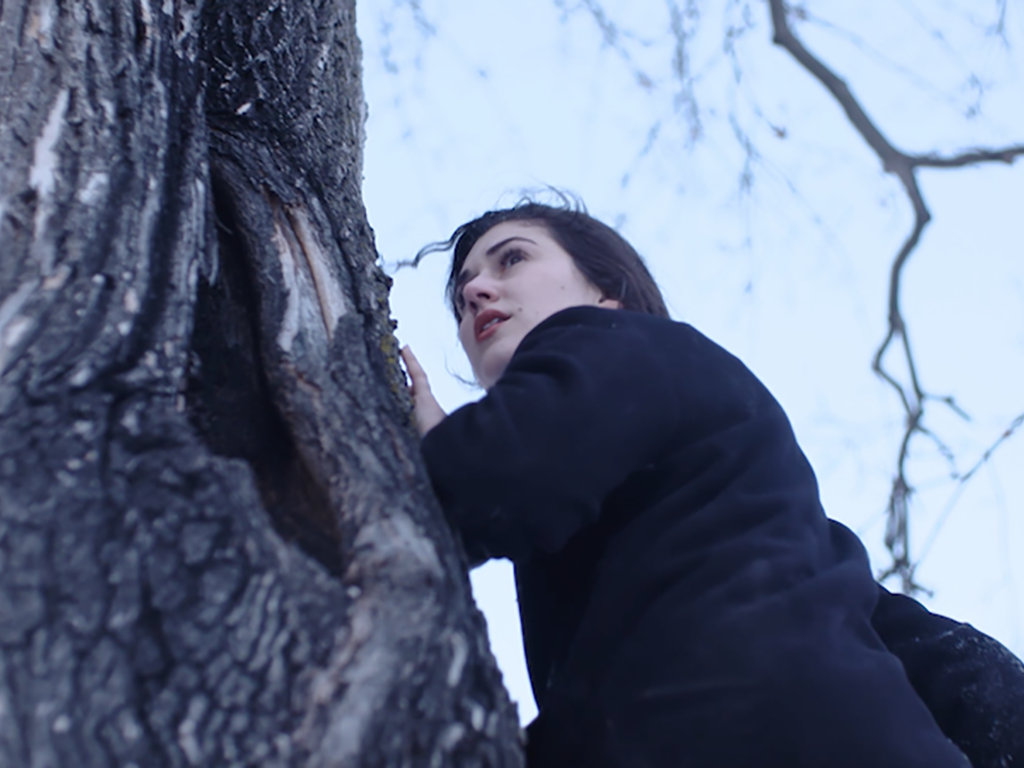When Con Spirito started following me on Instagram, I thought, "Oh, damn... this better be a film about Elizabeth Bishop." Luckily, I was right, and I immediately messaged the creators to see if we could set up an interview. I studied English at a small liberal arts school, so of course I had a hardcore Elizabeth Bishop phase (along with Virginia Woolf, Anne Sexton, Sylvia Plath, and the list goes on and on).
Last week, from a hotel room in Atlanta, GA, I FaceTimed with four members of the cast and crew, who are primarily based in New York City. We had an excellent conversation about Bishop, women in film, the importance of creative projects, and how sad we are that Sunshine Cinema is closed (RIP). Although this film is an historical narrative, it's based on true events and the amount of research that went into it is incredibly impressive. Before we jump in, here's some background on the women I interviewed.
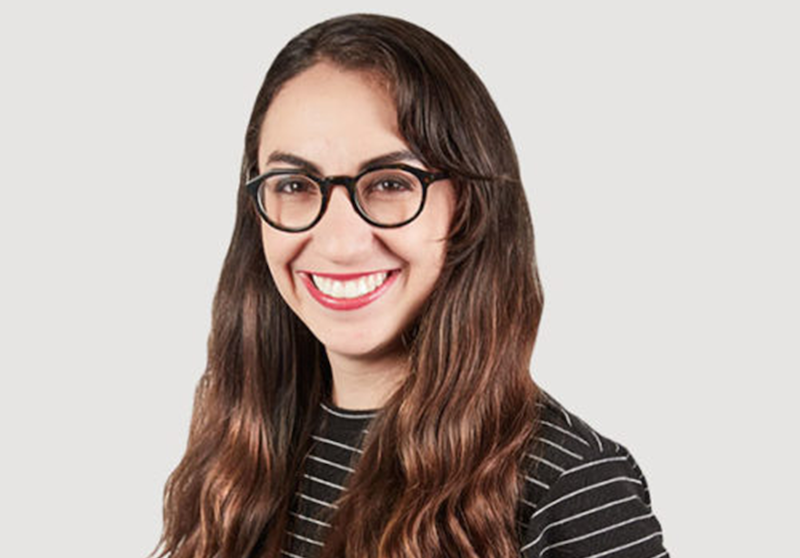
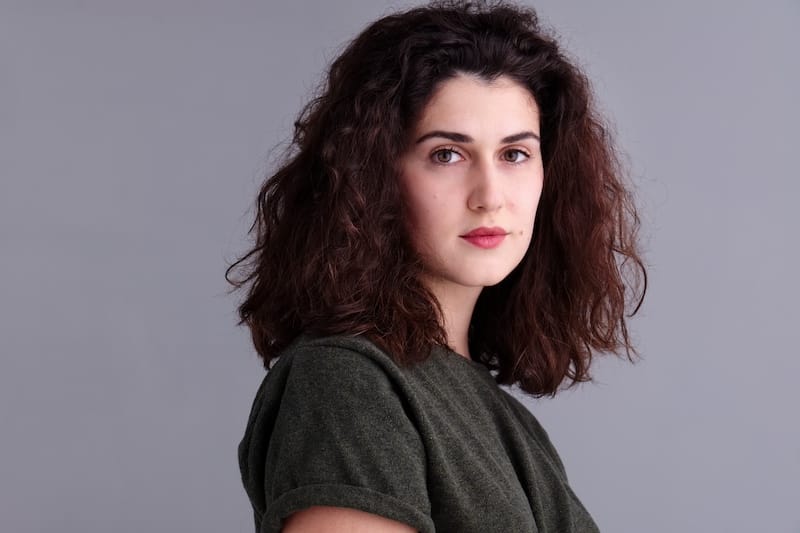
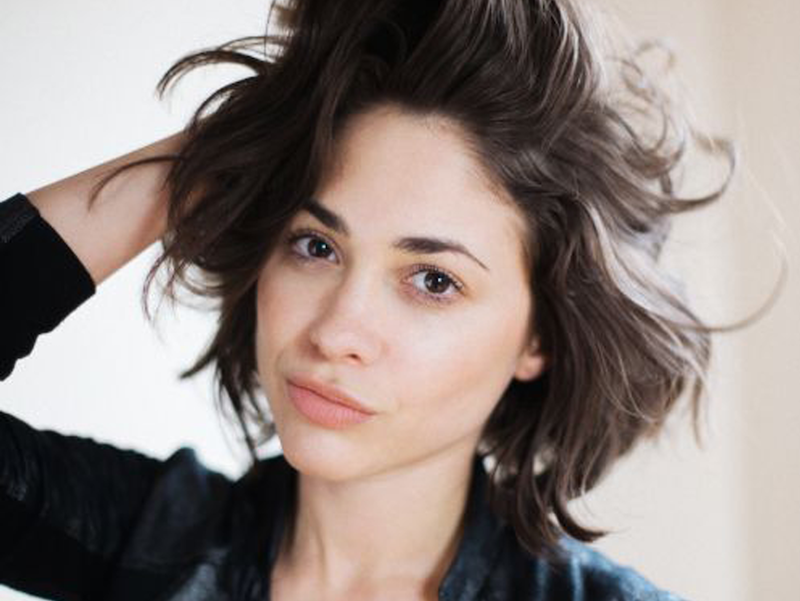
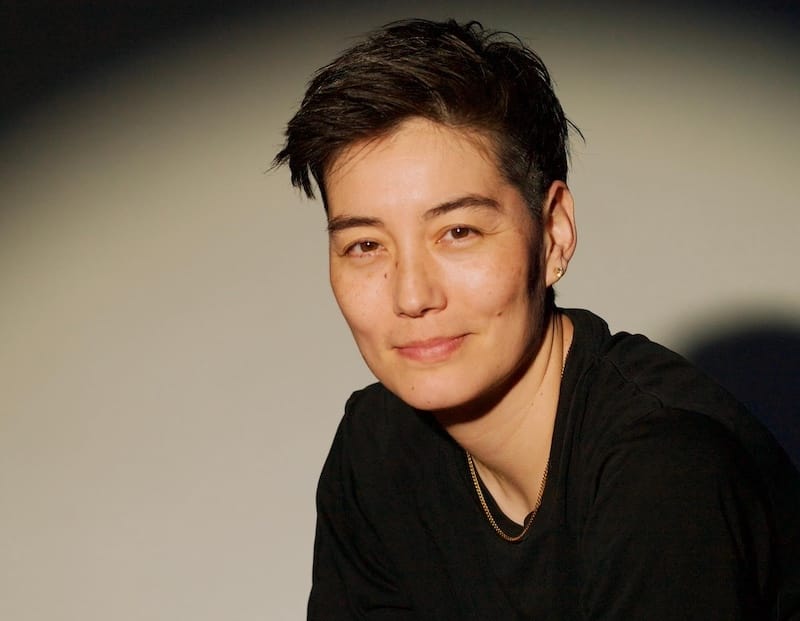
From left to right: Emily, Alex, Patricia, and Caroline.
Alex Sarrigeorgiou: Alex is the writer, producer, and actor who plays Bishop in the film. She's also the crew's resident Bishop expert and convinced me to immediately buy a copy of "Elizabeth Bishop: A Miracle for Breakfast" (Marshall, 2017). Like Bishop, she is a poet and has had some beautiful work out recently in Fugue Journal. Her favorite Bishop poem is "Filling Station.
Emily Izquierdo: Emily lives in Portland and is the director of "Con Spirito." Whenever we spoke, she was with the rest of the crew in NYC to finish out pre-production before beginning to shoot in two weeks. No big deal or anything, but she has worked on incredible shows like "BoJack Horseman," "Jeff & Some Aliens," and an upcoming animated YouTube series with Kat Dennings and John Cena called "Dallas & Robo." Her favorite Bishop poem is "The Fish."
Patricia Selznick: Patricia is the co-producer of "Con Spirito" and is comfortable in front of and behind the camera. Recently, she wrote and produced the short film, "Chocolates" (2017), about "the delicate relationships of siblings and family." If she was having a shitty day and wanted to watch something to cheer her up, she'd put on Beyonce's "Lemonade." Patricia is a fan of "One Art."
Caroline Mariko Stucky: Caroline is the director of photography on "Con Spirito." While creeping around her website I came across a line that I find very beautiful: "For Caroline, film, the world of the image, is the ultimate language that trumps the whirling kaleidoscope of spoken languages in her childhood." To give you some context, she is fluent in English, French, German, and Japanese. Recently, she worked on "Solomon" (Armstrong, 2021), a film based in Detroit and premiering this year. Caroline seconds the brilliance of "One Art."
To give context on the project's focus, here is the Kickstarter synopsis of the film, inspired by true events:
At Vassar College in 1933, Elizabeth Bishop and Margaret Miller sneak around campus in the dead of night posting an anonymous call for submissions to their experimental, boundary-pushing literary newspaper, Con Spirito. Caught in the rebellious spirit of the mission, they wind up spending the night in a tree, discussing their radical venture, life at Vassar, writing, and loneliness. As the sun rises on Vassar’s campus, the two women leave their perch on the tree with a new, profound understanding of each other, and of the challenges ahead of them.
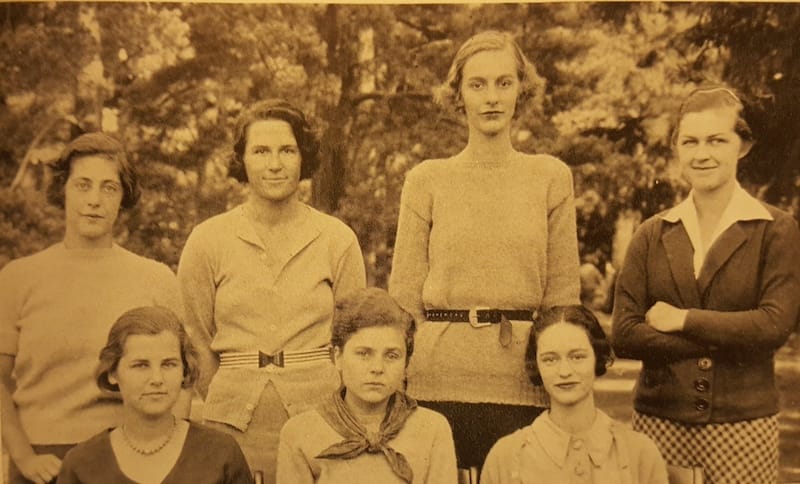
Interview with Emily Izquierdo, Alex Sarrigeorgiou, Patricia Selznick, & Caroline Mariko Stucky
Woman in Revolt: How did the project come together?
Alex: I started working on the script about a year, a year-and-a-half ago. I have loved Bishop's poetry since I was in college. I mostly write poetry, and this is actually my first script. I read an interview with Bishop that I thought was fascinating and when I started digging into information about her, I realized that the Bishop archives are all at the library at Vassar, which is where I went to school. I spent a weekend there doing research and then I read this quote in her interview with The Paris Review about how she and a friend once spent a night in a tree at Vassar. I immediately got this image in my head and thought, "Wow, this would make a really great short film." I shared the script with Patricia and Emily really early on and Patricia was like, "We need to make this."
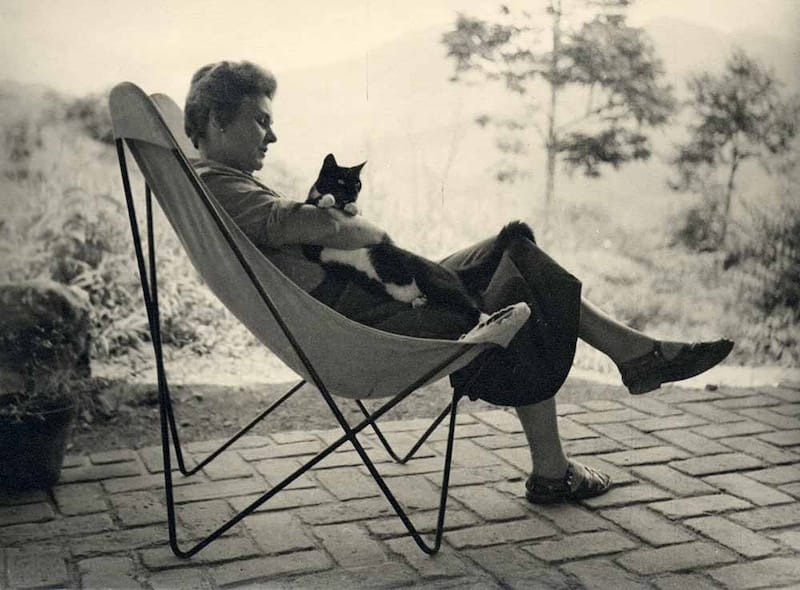
I got into Bishop not so much through her poetry, but her letters. I really want more people to write me letters so that my kids have something interesting to read when I'm dead.
Alex: I'm a big letter reader. Virginia Woolf is one of my all-time favorite writers and I adore her letters. I tend to go into little obsessions with literary figures where I pour through all of their journals and letters.
Do you all share the Bishop obsession?
Patricia: That's interesting, because I actually didn't know who she was before this project. I know Emily has a particular take on Bishop that has changed over time.
Emily: I want to Vassar with Alex and sort of knew the name Elizabeth Bishop because she's somewhat of an icon on campus. It wasn't until this project that I got to really know her and became a fan. Now she's one of my favorite poets and I think it's been so cool getting to know her through this film. She's a fascinating person.
Caroline: Like Emily, I knew a little bit about her, but this project has opened my eyes to her work and it's been an amazing discovery for me.
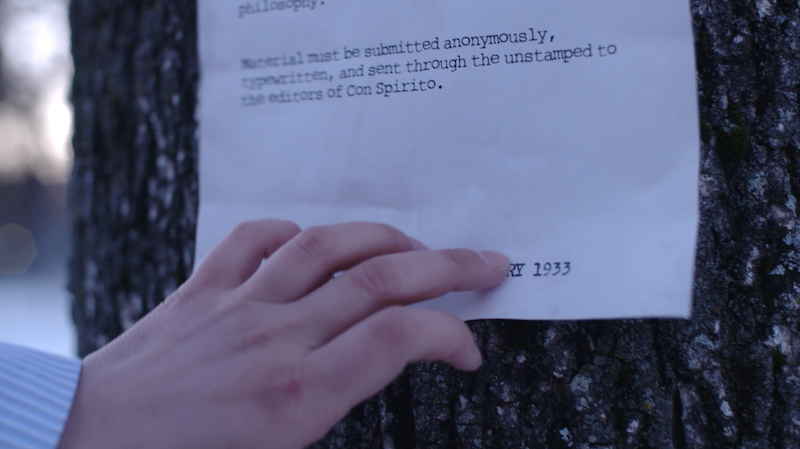
How long have you been working on pre-production and what is your production process like?
Patricia: We decided to pull the trigger on this film in January, but it all began last summer. I was hosting a women's workshop when Alex gave me the script and I knew we needed to make the film.
Alex: Getting permission from Vassar to shoot on campus was a crucial part of the process. We really didn't want to shoot this anywhere else since it's so entwined with Vassar's history.
Emily: The production itself will last three nights.
Particia: Post-production will hopefully wrap-up around mid-May and the film will start screening in June.
Has Vassar been helpful throughout the process?
Alex: Yeah, we have a main contact person at Vassar who has been helping us. We've been up for location scouts a couple of times. We'll be there again on Friday to see the dorm room we're going to use. It's the same one that was in "Frances Ha" (Baumbach, 2012).
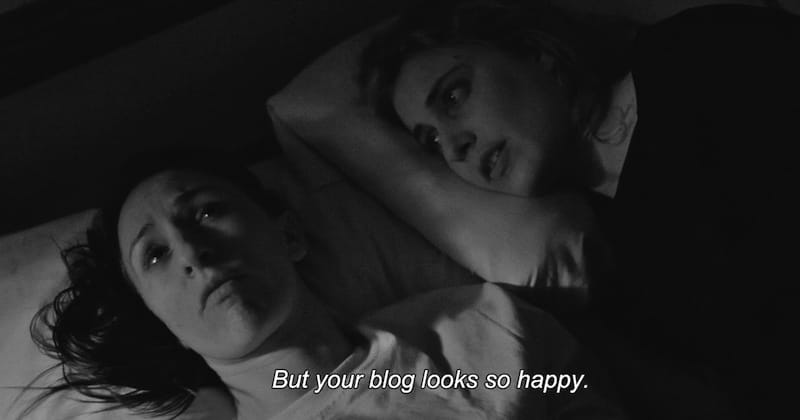
For the longest time, I thought Greta Gerwig went to Vassar, but it was actually Noah Baumbach, right?
Emily: Yeah. His roommate at Vassar was someone who is also involved in the entertainment industry but does the exact opposite type of movies. I'm trying to remember... I think it's Jason Blum, the "Paranormal Activity" guy.
Patricia: I like that trivia!
In college, did you actually study what you ended up doing? Were you theater or film majors?
Alex: I was a theater major, but I was always very involved with the film department. Emily was a film major.
Emily: That's kind of how we became friends.
Alex: We both studied abroad in Prague. I was doing a film acting program, she was doing a film directing program at the same school.
Emily: I studied filmmaking, but after graduation I've been more involved with animation and production. It's cool to go back to Vassar and direct a film there, where it all began.
Caroline: I went to film school. I studied filmmaking, not cinematography, but my teachers always told me I had a good eye, and I really love to be behind the camera. I would say I learned cinematography on set, through mentors.
Patricia: I was a film major, but I got kicked out because of French cinema class. But nevertheless, she persisted. I ended up majoring in English, but still getting into the film industry. I was like, "I'm coming into film, whether you like it or not. We need more women in this industry."
Is there any reason why you feel like Elizabeth Bishop's story is the one you want to tell right now? What is it about her in particular that excites you?
Alex: I was immediately drawn to the story of Con Spirito when I started researching Bishop's time at Vassar. Con Spirito, the magazine, was really for a group of women who didn't have anywhere else to publish what they wanted to write. The more conservative Vassar Review, the official school magazine, wouldn't accept their material. There was an awful editorial that came out in the American Spectator, a big literary publication at the time, that mocked women's colleges and the need to educate women.
The editorial in the first issue of Con Spirito was a scathing response to that awfulness. It was so witty! And that's kind of how everything started. Women would go to a speakeasy off campus to work on the magazine and talk about how to make their voices heard. So many years later, we're doing the same thing.
As an actor, the number of no-lines, full nudity roles I've auditioned for is really scary. After one audition, I called my mom in tears and said, "Is this what I went to school for? Is this what I want to do with my life, be in the background, naked?" Shortly after that, I started writing this script.
Patricia: I think the story of Con Spirito is an important one. Women could voice their opinions anonymously without fear of it affecting their future. It's because of those women that we're able to freely voice our opinions now - they paved the way.
Emily: In the past few years, I've felt an energy that I can't quite explain, especially after the Women's March. Keep moving forward, keep telling your stories, keep raising your voice. We're continuing Bishop's journey. It's a different time, different way, different medium, but we're always moving and marching forward. I really feel that energy right now.
Patricia: Oh yeah, that's because Mother Nature is angry. She's like, "Alright, girl... start walking!"
Alex: Also, as a queer woman, I'm really interested in Bishop. She wasn't out in her lifetime. There was a heartbreaking line in the biography I'm reading now where she refers to her partner at the time as her friend and the author states that if she had lived longer, she probably would have found a more appropriate word to describe that person.
I've been thinking a lot about how the queer characters we see in film are often fetishized or explained from a male point of view. We were just talking about this, but "Blue is the Warmest Color" (Kechiche, 2013) is one of those films. I enjoyed it, but it's obviously male-driven. Our film is more about the intellectual connection between two people, which is rarely depicted on screen. There's attraction and chemistry, but it's not about Bishop and Miller making out all night in a tree.
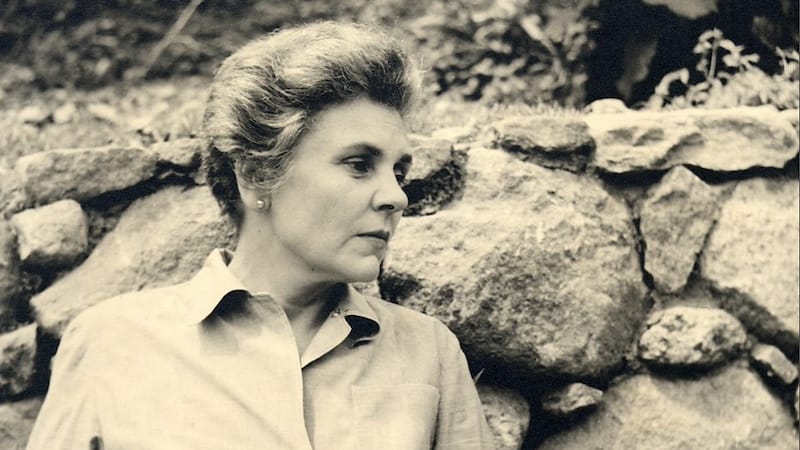
I wonder how Elizabeth Bishop would feel about people combing through all of her private shit. Everything I've read about her suggests that she hated when people knew too many details about her personal life.
Alex: Sorry, Elizabeth Bishop! I've actually thought about this a lot.
Patricia: Her ghost is definitely coming on campus that night and she's going to be walking around like, "I see you."
Alex: I think she was a product of her time. She was born in 1911 and at no point in her life could she comfortably express her sexuality. I think her privacy makes sense.
Caroline: The script is very respectful. When I read it, I thought it was subtle and the perfect way to portray her without revealing anything too intimate.
I'm glad this film isn't a documentary. I think historical fiction is the better way to tell this story and expose people to someone they might not know without the strictures of 100% accuracy and the trickiness that comes with archival footage.
Alex: I like to think that anyone who loves Elizabeth Bishop will find this film interesting, but I also hope it's a story that appeals to a larger audience. It's about rebellion and women finding their voices... There are many universal elements that should connect with a wide variety of viewers.
In all of the research that you've done, what is the most valuable thing you've found that you would recommend to someone who wants to know more about Bishop?
Alex: I would definitely recommend "Elizabeth Bishop: A Miracle for Breakfast." Her interview with The Paris Review is also really wonderful.
Patricia: I think what is really important is that she was a perfectionist. For as famous as she was, she really didn't publish much.
Alex: She published 100 poems and a handful of short stories during her lifetime. She really didn't like people knowing anything about her business and she didn't put anything out there until she was absolutely certain about it.
Patricia: She would have been great at Instagram! Every five years she would post something and it would be gold. She was meticulous about her work, which I think is really cool. She didn't just put things out there to see if someone would praise her. She only published things she loved, and, not to be cheesy, but I think that's really poetic.
And all too rare in the age of the Internet. Have you stumbled across any little known facts about Bishop?
Alex: YES. After Bishop was kind of rejected by Margaret Miller, she started dating this random dude, who she didn't really like for obvious reasons, and he proposed marriage. She turned him down. A year later, he killed himself and left a suicide note that said, "Elizabeth, go to hell."
Patricia: Male egos... they're fragile.
Are there any other literary figures you have an equal affinity for? Alex, I know you mentioned Woolf.
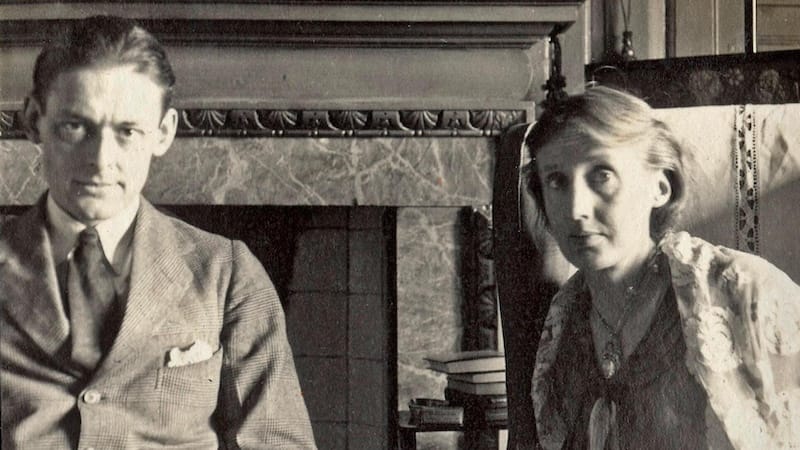
Alex: I adore Virginia Woolf. I've found a few interesting literary connections through researching Bishop. When she was at Vassar, she got to interview T.S. Eliot. She was really nervous about it, but it went well and they continued their correspondence after the interview. He later ended up reading and loving Con Spirito and applauding their efforts. And Eliot and Woolf also knew each other. They ran in the same circles, her printing press published him... It's all connected.
Emily: Can you guess the next project she's going to write?
You could easily make this a thing where you just dive into the lives of all your literary heroes.
Alex: It's like a Marvel Universe.
But the better version. What would you say to a young person who wants to graduate from college and make movies?
Alex: I'm someone who finds putting my work out there very scary. I'm always worried about how it's going to come across and hesitant to show it to anyone until I think it's perfect. Getting over that fear has been huge for me. There's a quote by Annie Dillard that goes, "You were made and set here to give voice to this, your own astonishment." It's taped on my writing desk. What it all comes down to for me is... what do I have to say? What am I passionate about? What is my astonishment in this life? Whatever it is, I think it's so important that I put it out there in whatever imperfect form I can.
Emily: I think it's essential to find a community that encourages your creativity. It can be difficult when you can't fully commit to whatever you're passionate about and if you find like-minded people, they can motivate you to keep working and find time to do what you love, even if it can't be your full-time job.
Patricia: I always think about writers who sat around at the bar all day and felt like they weren't doing anything, but really they were! They wrote masterpieces that they thought were going to be totally inconsequential and created an entire community around them. Art is all about expression and passion... that's the thing to keep in mind.
Emily: It's necessary to carve out the time to remember why you love what you love.
Patricia: And if all else fails, just get out your crystals and meditate.
Now is definitely a powerful time for women in film. Do you feel like things are changing?
Alex: We were just talking about this. Patricia said something about how it feels like the floodgates have been opened.
Patricia: The wall has been demolished and now we're walking through the gates. There's so much now that we can grasp and we don't have to shout as loud to be heard. We can finally enjoy the process instead of feeling like we're hitting our heads against the wall. #FemaleFilmmakerFriday is such a simple concept, but I've been amazed by people posting things from so long ago... There were so many female filmmakers out there working hard, even in the early 1900s, but no one was paying attention to them.
Emily: Now is the time to get out there... to continue making a difference. We can't ever become complacent.

